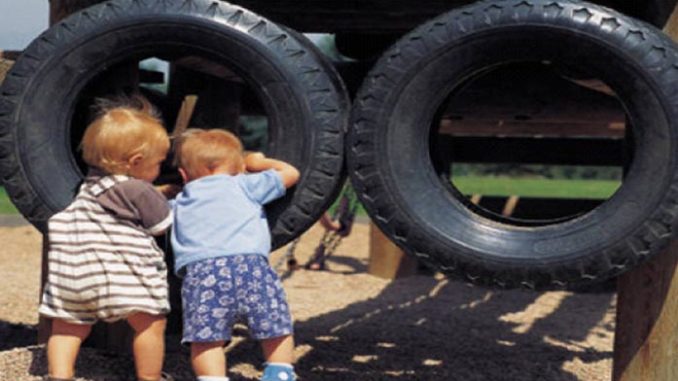
By signing Senate Bill 1050 on Wednesday, Gov. Doug Ducey has strengthened the threshold that must be met to accuse a parent of neglect in some situations, thus protecting families from unnecessary and costly allegations.
SB1050 sponsored by Sen. Kelly Townsend makes what appears on the surface to be a few simple changes to the three dozen definitions related to neglected children contained in Arizona Revised Statutes 8-201. Those definitions are relied on daily by parents, attorneys, medical providers, Arizona Department of Child Safety (DCS) staffers, and most importantly, state judges.
Supporters of SB1050 agreed it was necessary to replace some subjective definitions in ARS 8-201 with more objective language. This makes it less likely that parents will be unfairly targeted through ambiguous allegations of neglect or abuse.
In addition, Townsend and others argued the changes will ensure parents whose actions meet the new, stronger thresholds will be less likely to skirt responsibility for neglectful conduct toward their children. SB1050 passed both chamber with strong bipartisan support, including a 58-0 vote in the House last week.
“It is my hope that with this higher threshold, children will still be protected but with family preservation in mind,” Townsend told Arizona Daily Independent after the governor signed the bill. “It brings a much needed balance to the child protective system that emphasizes the importance of keeping families together and not be so quick to remove a child if the family unit can be rehabilitated and preserved.”
Townsend’s bill changes only three of the 36 definitions, including ARS 8-201.2(b) which currently defines a type of abuse as physical injury caused by “permitting a child to enter or remain in any structure or vehicle in which volatile, toxic or flammable chemicals are found or equipment is possessed by any person for the purpose of manufacturing a dangerous drug.”
Under SB1050, the current passive verb of “permitting a child” will be changed on the legislation’s effective date to require a showing that an injury resulted from the parent “allowing” the child to be in the structure or vehicle.
Another statute, ARS 8-201.25(b), currently uses the same “permitting” language related to the manufacturing of a dangerous drug in a definition of neglect or neglected. SB1050 amends that definition by replacing “permitting” with “allowing” as in ARS 8-201.2(b).
SB1050 also tackles the second part of the statute due to the fact many common household products can be used in manufacturing dangerous drugs such as methamphetamine. Therefore, ARS 8-201.25(b) was further amended to require the hazardous chemicals be possessed by a person “with the intent and for the purpose” of manufacturing a dangerous drug.
Finally, SB1050 changes one of the current definitions of neglect which is open to the most variety of interpretations.
ARS 8-201.25(a) refers to neglect as the “inability or unwillingness of a parent, guardian or custodian of a child to provide that child with supervision, food, clothing, shelter or medical care if that inability or unwillingness causes unreasonable risk of harm to the child’s health or welfare…”
But what is unreasonable can vary among DCS workers, parents, attorneys, and judges. Therefore, SB1050 amends the phrase “unreasonable risk of harm” to require a stronger showing of “substantial risk of harm.”
Now that Ducey has signed SB1050, the changes to ARS 8-201 take effect 90 days after the current legislative session ends.
